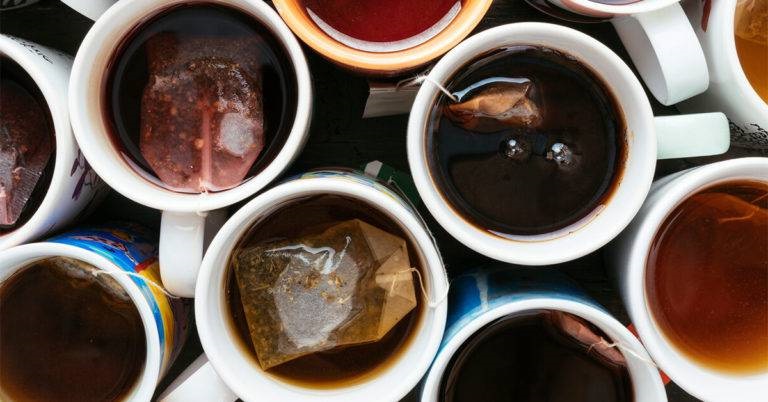Tea is considered a healthy drink and it comes in a wide range of options from green tea to herbal. But it has a compound that can make you addicted to drinking tea.
Let’s examine what is that tea compound and how is it related to addicted to tea
Tea contains caffeine and this compound is present in every variety in varying amount. Caffeine is a natural stimulant but labeled as addictive because its chemical structure allows it to fit into adenosine receptors in the brain.
Adenosine is a naturally existing compound in human body and its presence relaxes tensed nerves. But caffeine can replace this compound in receptors triggering addiction. The moment caffeine loses its strength, the brain signals that you’re tired and require caffeine in large quantity.

Over consumption of tea could result in caffeine addiction and withdrawal symptoms in the event of quitting the tea. But there are different views on whether the caffeine addiction is true addiction.
Is addicted to caffeine?
In order to call caffeine a substance abuse, you need continuing taking tea despite experiencing harm or be unsuccessful in cutting down the usage or face withdrawal symptoms on quitting tea. According to researches, people habitual of drinking tea could develop addiction for caffeine at some point of time.
Amount of caffeine that can make you addicted
Research done in the study of caffeine to understand its power of causing addiction suggest that even 2-3 cups of tea of any variety are sufficient to cause caffeine addiction in the person. But more research is needed to determine an exact amount of caffeine to develop addiction.
Signs and symptoms of addicted to tea

If you feel lack of concentration, drowsiness, fatigue, depressed mood, irritability, anxiety and headache while reducing your daily dose of tea, you are certainly addicted to caffeine.
How to quit caffeine?
Quitting caffeine at one stroke could cause unpleasant symptoms and for this reason, you should try gradually reducing your caffeine intake. Also, you should take ample sleep to overcome fatigue and anxiety. Drinking plenty of fluids would also help in controlling the withdrawal symptoms.
Choose a caffeine-free alternative
Warm water with a dash of lemon is a good alternative to tea. Also, you can try mulled apple juice or prepare warm beat or carrot juice. Warm almond milk with a taste of cinnamon is also a good choice. Some people would like a golden milk latte or herbal tea.
